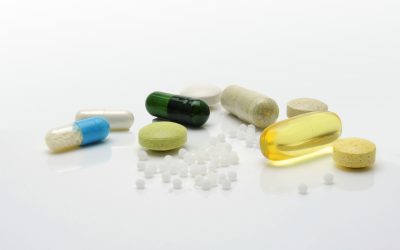Iron Deficiency and Fertility
dependi What is Iron Deficiency?
Have you been feeling tired, weak, dizzy, short of breath, or always cold? If you answered yes, you’re not alone! These symptoms are often a tell-tale sign of iron deficiency anemia. Iron deficiency is the MOST COMMON nutritional deficiency among women of reproductive age. The reason iron deficiency is so common is that we ladies menstruate every month, lose quite a bit of blood, and therefore lose quite a bit of iron too.
Most women are aware of the fact that iron deficiency can leave us feeling absolutely exhausted and run down. However, what many women don’t realize is that iron deficiency can have significant impacts on our fertility. If we are lacking iron (and therefore lacking adequate oxygen delivery to our body’s tissues), how can we be expected to get pregnant and stay pregnant? Iron deficiency and fertility go hand in hand. If you’ve been struggling with infertility, it’s time to take a look at your iron status!
Iron Deficiency and Fertility
Iron deficiency has been linked to infertility, miscarriage, low birth weight, and preterm labour1, 2, 3. Researchers have found that women with inadequate iron stores are more likely to suffer from anovulation, meaning they fail to ovulate1, 2. As most of us know, when we don’t ovulate, pregnancy becomes completely impossible! Moreover, when our iron stores fall into an unhealthy range, this prevents red blood cells from developing. This translates into decreased oxygen to the body’s tissues INCLUDING the ovaries and uterus. When there is insufficient oxygen delivery to our reproductive organs, eggs become poor in quality, and may even become unviable2. Again, without optimal egg quality and development, pregnancy becomes near impossible.
Even if you are iron insufficient and manage to become pregnant, the lack of oxygen delivery affects the baby’s development, prevents proper placental development, and increases the rates of miscarriage and preterm birth3.
Luckily for us, there’s no need to panic! Researchers have found that women who supplement with iron regularly decrease their risk of infertility by 40%1. Moreover, women who take more than 41 mg of iron per day decrease their risk of infertility by 62%1! Proper supplementation and restoring iron levels has also been shown to improve pregnancy parameters3. Safe to say, the importance of evaluating iron status while trying to conceive cannot be emphasized enough!
So What Should I Look Out For?
Iron vs. Ferritin
We often hear about testing serum iron AND ferritin to determine iron status, so what is the difference between these two? Put simply, ferritin is a protein that stores your body’s iron, whereas iron is just the amount of iron present in your blood. Ferritin is the measure most often used to determine your body’s iron status!
What’s Considered Normal?
If you have been trying to conceive with no luck, and are worried your iron status is to blame, what ferritin levels should you be aiming for? Labs have a massive “healthy” range for ferritin, with values ranging from approximately 20 – 200 ng per mL in women. Rather than a black and white approach to looking at “normal ranges”, and just seeing if you are in the range or out of the range (as more doctors do) let’s instead look at it little differently, categorizing them into “unhealthy” states, “suboptimal” states, and “optimal” states. This ensures you are reaching the absolute optimal state of health to increase your chances of pregnancy!
- Unhealthy State (AKA Iron Deficiency): below 11 ng per mL
- Suboptimal State (AKA Reduced Stores): 30-60 ng per mL
- Optimal State: above 50 ng per mL
When it comes to ferritin and fertility, we want to aim for 50 ng per mL and over. Although 50 ng per mL still technically falls into the “suboptimal” state, menstruating women lose blood every cycle (and hence lose iron every cycle depending on how heavy the bleeding is) which sometimes makes it very difficult to attain levels above 60. Often a level of 50 ng/ml should be enough to become and remain pregnant!
Overcoming Iron Deficiency and Fertility
Supplementation
Supplementing with iron can improve your fertility and pregnancy parameters! Always have your iron levels checked by a health care professional before beginning supplementation. If it turns out your iron levels are adequate, supplementing can actually be dangerous. If you turn out to be iron deficient, here are some things to consider in an iron supplement:
Heme Vs. Non-Heme
Heme iron is the more easily absorbed form of iron, and is typically found in animal sources. Non-heme iron is more difficult for your body to absorb, and comes from plant-based sources. Although heme iron is more absorbable, research to date shows more benefit of non-heme iron when it comes to improving ovulation2. Nevertheless, both forms are fine to take and will likely provide benefit! Either way, and especially with non-heme forms of iron, you must ensure you are taking a high quality and highly absorbed form, which will minimize side effects.
Other Considerations for Your Iron Supplementation
To ensure you are absorbing as much iron as possible (whether heme or non-heme), it’s important to pair iron with nutrients that boost its absorption. For example, vitamin C, B12, and folate enhance iron absorption and should therefore be included in your iron supplement!
Diet
Supplementation is not always necessary if you’re not in an “unhealthy” state. Incorporating iron-rich foods into your diet can also provide major fertility benefits! Again, be sure to pair iron-rich foods with foods containing vitamin C!
Foods Rich in Non-Heme Iron:
- Legumes such as peas, beans, and lentils
- Nuts and seeds including peanuts and hazelnuts
- Dried fruits including prunes, raisins, and figs
- Leafy green vegetables (kale, broccoli, spinach)
- Whole grains such as oatmeal
Foods Rich in Heme Iron:
- Lean chicken, turkey, salmon, tuna, and eggs!
- Avoid red meats as they are inflammatory and can be detrimental to fertility!
Foods Rich in Vitamin C:
- Citrus fruits
- Peppers
- Kiwi
- Leafy greens such as broccoli and kale
- Tomatoes
- Strawberries
Need Help Improving Iron Deficiency and Fertility?
Maintaining adequate iron stores seems like such a basic and simple process. However, when iron is out of balance, it truly is able to completely transform our fertility. If you have been trying to conceive with no luck, you are on an IUI/IVF waiting list, or you are simply thinking about getting pregnant, it’s time to optimize your iron levels! Not only can inadequate iron prevent ovulation, but it can also make eggs unviable, prevent proper placental development, and increase the chances of miscarriage and preterm birth. If you would like to learn more about iron deficiency and fertility, and what more YOU can do, I am here for you and happy to help!
With love and in health,
Priya
References
- Chavarro J, Rich-Edwards J, Rosner B, Willett W. Iron Intake and Risk of Ovulatory Infertility. Obstetrics & Gynecology. 2006;108(5):1145-1152.
- Sathiyanarayanan S, Sundar J, Madhankumar E, Praneetha A, Kalaiselvi S, Gopinath P et al. A study on significant biochemical changes in the serum of infertile women. International Journal of Current Research and Academic Review [Internet]. 2014;2(2):96-115. Available from: http://www.ijcrar.com/vol-2-2/Sasikumar%20Sathiyanarayanan,%20et%20al.pdf
- Turgeon O’Brien H, Santure M, Maziade J. The Association of Low and High Ferritin Levels and Anemia with Pregnancy Outcome. Canadian Journal of Dietetic Practice and Research [Internet]. 2000;61(3):121-127. Available from: https://www.ncbi.nlm.nih.gov/pubmed/11551330
I want to help you get there. The key to your fertility lies within you.
Let's Awaken it!
More Reading
Naturopathic Medicine in Fertility
Whether you are just starting to try to get pregnant, struggling with getting pregnant or suffering from recurrent miscarriages, a fertility naturopathic doctor can help you along your fertility journey. Naturopathic doctors are trained healthcare professionals with...
The Role of Melatonin in Fertility
Most of us have heard about melatonin in the context of sleep, as a supplement that can impact our circadian rhythm. However, this hormone also plays an important role in female fertility. What is Melatonin? Melatonin is a hormone made by the pineal gland in...
Simple Tips to Improve Your Chances of Conceiving
It’s easy to get caught up in the minor details of what we could be doing better when trying to get pregnant. This can lead to constant thoughts around the effects that our daily activities have on our chances. This self-criticism can feel overwhelming and...




Share This
Share this post with your friends!